 The notebooks and the tablets have really exciting performances, but often they present great faults from the point of view of the internal memory, which in these years has become a very used discriminating factor to raise or lower the price. Having an ever-decreasing amount of disk space, you need to find ways to expand this fixed memory of your laptop or device, trying to add new disk space spending little and without too many technical steps (everyone must be able to make this kind of changes without the help of a computer technician).
The notebooks and the tablets have really exciting performances, but often they present great faults from the point of view of the internal memory, which in these years has become a very used discriminating factor to raise or lower the price. Having an ever-decreasing amount of disk space, you need to find ways to expand this fixed memory of your laptop or device, trying to add new disk space spending little and without too many technical steps (everyone must be able to make this kind of changes without the help of a computer technician).If your notebook or tablet has a NAND memory or an SSD disk with a capacity of less than 500 GB, in this guide we will show you how to add memory and disk space quickly and easily, without necessarily having to change internal components or buy a new laptop or tablet.
How to add memory and disk space to laptops or tablets
To increase the internal memory or disk space of a laptop or tablet we have various methods, it is up to us to choose the one that best suits our purposes and our pockets (some are very cheap or even free, others still require an expense).
SD or MicroSD card
Most Windows laptops and Android tablets have a slot to insert SD or Micro SD cards. When the card is inserted into the device, it is immediately recognized by the device as external memory and can be immediately used as an additional memory to save our files.
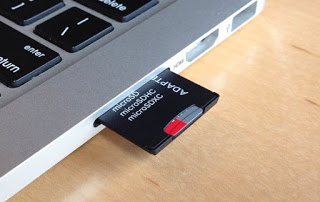 If we have an SD slot on the notebook, we advise you to purchase one of the following memory cards:
If we have an SD slot on the notebook, we advise you to purchase one of the following memory cards:
- 128GB TF Memory Card, Ultra Class 10 UHS-I (€ 23)
- Lexar Professional 633x 256GB SDXC UHS-I Cards (€ 42)
- Transcend TS256GSDC300S 256GB SDXC Memory Card (€ 46)
- Sandisk Extreme Pro 256 GB Memory Card (€ 99)
- SanDisk Extreme PRO 256 GB, SDXC Memory Card (€ 100)
If instead, we want to increase the memory on a tablet, we can use one of the following microSD memory cards with an adapter (the latter to be used if necessary on notebooks):
- Kingston SDCS / 128GB Canvas Select 128 GB MicroSD Card (€ 15)
- SanDisk Ultra 128GB MicroSDXC Memory Card and Adapter (€ 22)
- SanDisk Extreme Pro 64 GB microSDXC Memory Card and SD Adapter (€ 27)
- Samsung EVO Plus 256 GB microSD card with SD adapter (€ 42)
- SanDisk Extreme Pro 128GB microSDXC Memory Card and SD Adapter (€ 43)
Before buying an SD card, we check the type of card and the size supported by the device: usually, the new models read up to 128 GB, but better check in the user manual or in the product’s technical sheet. In this regard, we advise you to read our guide to buy the SD card and types of memory cards.
A USB stick (with OTG on tablets)
If we don’t want to take advantage of the SD or micro SD slot, we can buy a very common USB key for the computer; it can also be used on tablets thanks to the use of technology USB OTG.
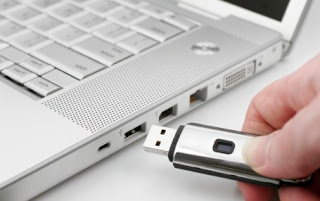
The best USB 3.0 sticks that we can buy at the moment are listed below:
- Verbatim Store’n’Go 128 GB USB Flash 3 (€ 18)
- Kingston DT100G3 / 128 GB DataTraveler 100 G3, USB 3.0 (€ 18)
- Sandisk Ultra Flair 128 GB, USB 3.0 Flash Drive (€ 31)
- Verbatim 256GB USB Flash 3 (€ 42)
- SanDisk Ultra 256GB USB 3.0 Stick (€ 49)
These USB sticks can be read from an Android tablet using one of the OTG adapters featured below:
- Aukru USB Type C to USB 3.0 OTG Host (€ 5)
- Rankie OTG Cable, Micro USB Male to USB 2.0 Adapter (€ 6)
- POSUGEAR OTG cable, Micro USB Male to USB 2.0 Female OTG (7 €)
- UGREEN OTG Cable USB Type C USB C Adapter to USB 3.0 (€ 8)
Let’s make sure we buy the right USB adapter based on the type of socket on our tablet, that is USB Type-C (newer) o USB micro-B (classical grip).
Cloud Storage
To increase the internal memory of the computer or tablet without applying any kind of hardware addition we will have to use the Cloud Storage or online storage space that can be accessed from any PC or tablet connected to the Internet.
 OneDrive, Dropbox, Google Drive, and other clouds offer free storage space that can be used freely to save personal files or to quickly exchange files or folders between different devices. The only limits are the capacity (often it is necessary to pay a subscription in order to benefit from a space greater than 15 GB) and to the speed of file exchange (based on the speed of the Internet line currently used).
OneDrive, Dropbox, Google Drive, and other clouds offer free storage space that can be used freely to save personal files or to quickly exchange files or folders between different devices. The only limits are the capacity (often it is necessary to pay a subscription in order to benefit from a space greater than 15 GB) and to the speed of file exchange (based on the speed of the Internet line currently used).
To learn more, we recommend reading our Free Cloud Drive comparison to save files online. If instead, we want to create a personal and unlimited cloud, we can read our guide on how to Create a Personal Cloud Server on the PC unlimited and free.
External USB disk
Another good way to add memory and disk space to laptops or tablets is use of an external USB disk, which boast a high capacity and excellent speed (especially on models with SSD).
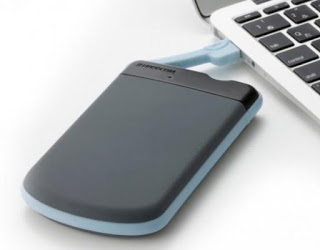
The best external USB disks we can buy for a notebook are:
- Samsung Memories MU-PA250B SSD 250 GB Portable External T5 (€ 79)
- Western Digital My Passport SSD 256 GB External Portable SSD Drive (80 €)
- Samsung Memories MU-PA500B SSD External Portable T5 500 GB (€ 88)
- SanDisk Extreme SSD Portable 500 GB (€ 105)
- Samsung Memories MU-PA1T0B SSD External Portable T5 1 TB (169 €)
We can also connect these external disks to the tablet, using one of the OTG adapters seen in the previous chapter.
If instead we already have a mechanical hard drive or a SATA SSD, we can convert it to an external USB disk using one of the following cases for disks:
- EasyULT External Case for Hard Disk 2.5 “, USB 3.0 (€ 8)
- GeekerChip 2.5 inch USB 3.0 HDD SSD External Case for Hard Disk 7.5mm 2.5 “(9 €)
- AUKEY External Case for Hard Disk 2.5 “USB 3.0 (€ 9)
In this regard, we invite you to read our guide on how to Transform internal disk into portable external drive, where we will find all the tips and tricks to convert an internal disk into an external USB drive.
Network disk (NAS or USB disk on router)
Another good way to add memory to a notebook or tablet is to install a network disk, which is a memory unit (usually a USB disk connected to a router or NAS) that allows access to its space and to files saved directly from the LAN or Wi-Fi.
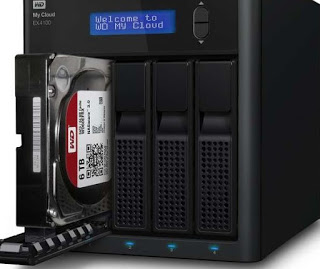
The devices connected to our home network they will see the network disk or NAS as an additional memory unit, which we can use to move or store files and folders.
To connect an external USB drive to the router and configure it as a network drive, please read our guide on Connect a disk to the router to share files over the network. If instead, we want to focus on a solution based on the NAS, we advise you to read our article Buy a network NAS Storage: what is the use and how much does it cost.
Do we want to convert an old PC as a network server? In this case, we can read our analysis on how to Use a PC as a NAS file server with FreeNAS, where we will find all the necessary information.
Replace the internal disk (on notebooks)
As a last chance to add memory and disk space to laptops we will have to replace the internal mechanical disk and replace it with a SSD drive, much faster and with increasingly larger capacities.
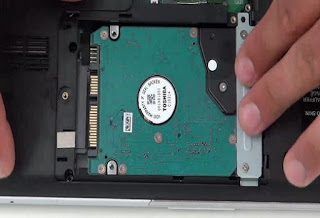
The best SSDs we can use on a laptop are:
- Crucial MX500 Internal SSD, 500 GB (€ 64)
- SanDisk 500GB Ultra 3D SSD, 2.5 “Internal SSD Drive (€ 67)
- Samsung Memories 860 EVO Internal SSD 500 GB (€ 77)
- Samsung Memories 860 QVO SSD Internal 1 TB (110 €)
- SanDisk 1TB Ultra 3D SSD, 2.5 “Internal SSD Drive (€ 153)
If we already have an SSD mounted on our laptop in a laptop, we can remove the reader or DVD burner and use the appropriate bay caddy, like the ones available below:
- QUMOX Laptop Second Hard Drive Dvd bay Caddy 12.7 Millimeters SATA (8 €)
- CSL – SATA 3 Housing for HDD SSD Hard Disk for Laptop (€ 10)
- SALCAR – 2nd HDD / SSD SATA 3.0 HDD Hard Drive (€ 11)
If we don’t know how to replace an internal drive on laptops, just read our guide on How to replace the hard disk to upgrade the PC in an hour. If instead we wanted to use the caddy instead of the reader or burner of the notebook, we can read the guide SSD on the Laptop, instead of the hard disk or DVD player.
Conclusions
In this guide we have shown you the different methods, more or less expensive, to add memory and disk space to laptops or tablets, without having to necessarily abandon the device or make strange changes: all methods are within the reach of any user.
If we also want to increase the RAM of our laptop, so that we can open a larger number of programs, we invite you to read the guide on How to increase RAM and add new memory to the PC. If instead the problem is the internal memory of Android, we can follow the suggestions proposed in the guide on How to increase Android internal memory, where we will also find methods to check the occupied space and delete unnecessary or too large files.

How to increase the memory of the SSD using Cloud (eg OneDrive), if these files have to be stored in the OneDrive folder of the SSD taking up space there?